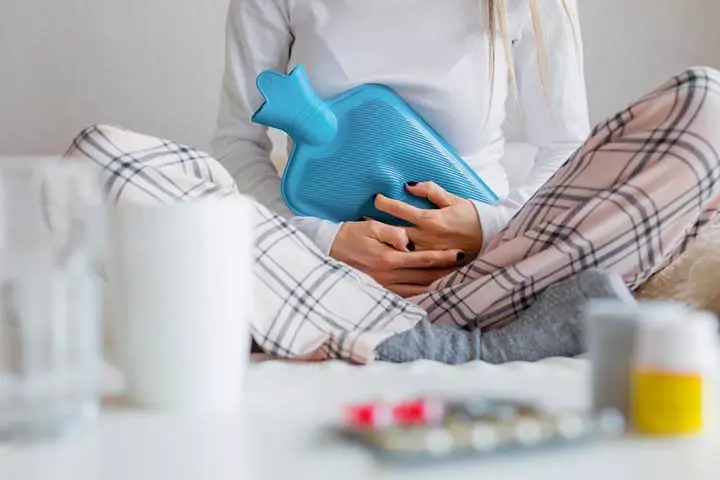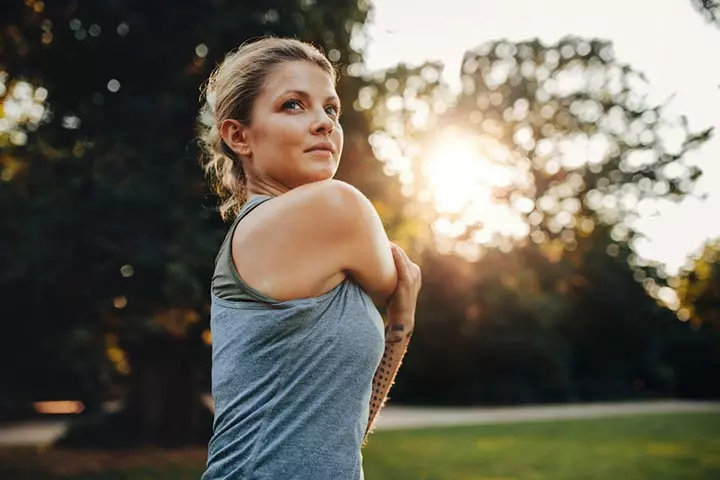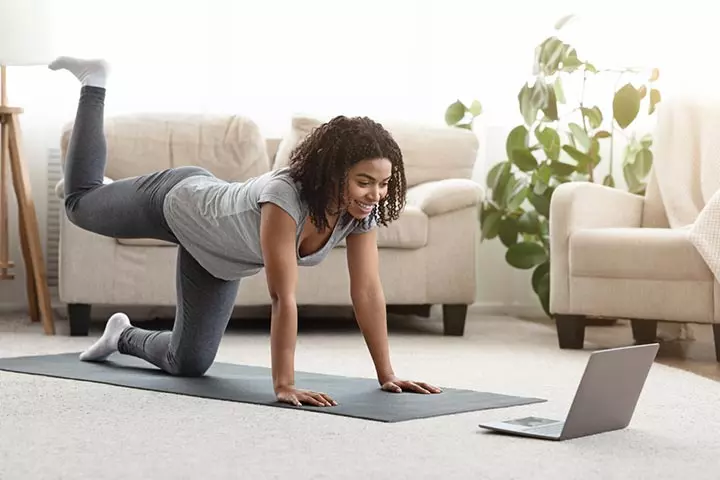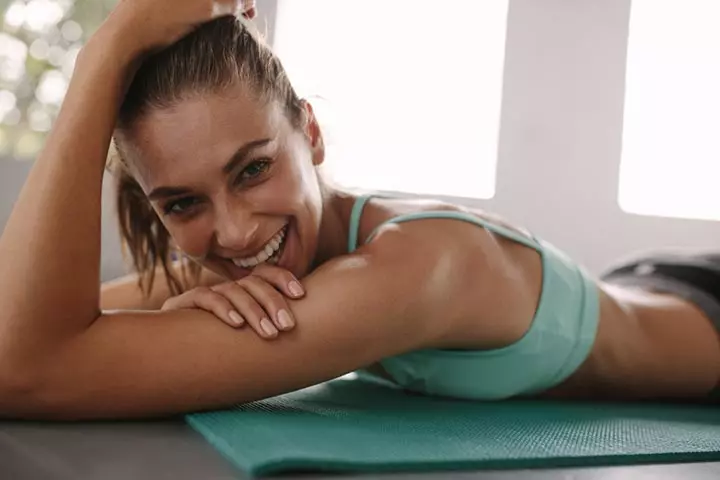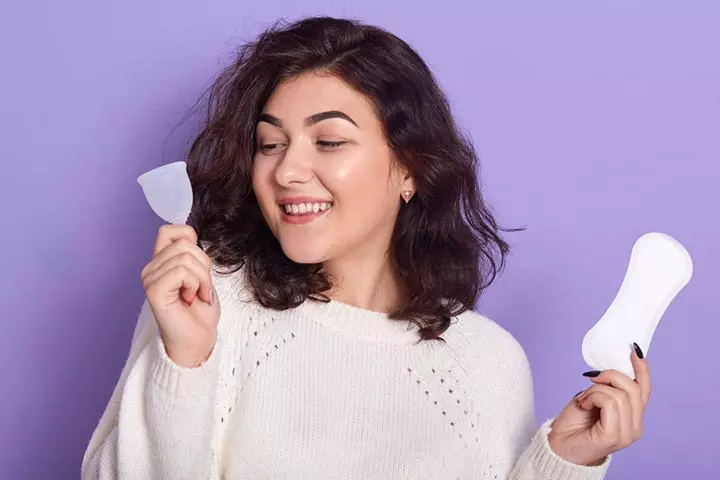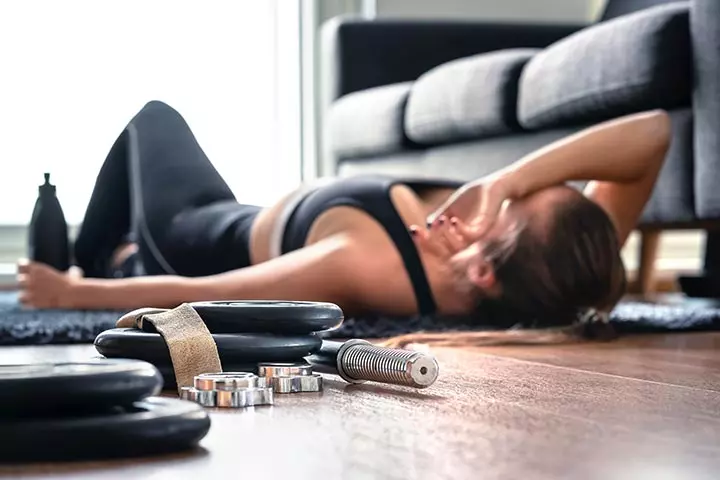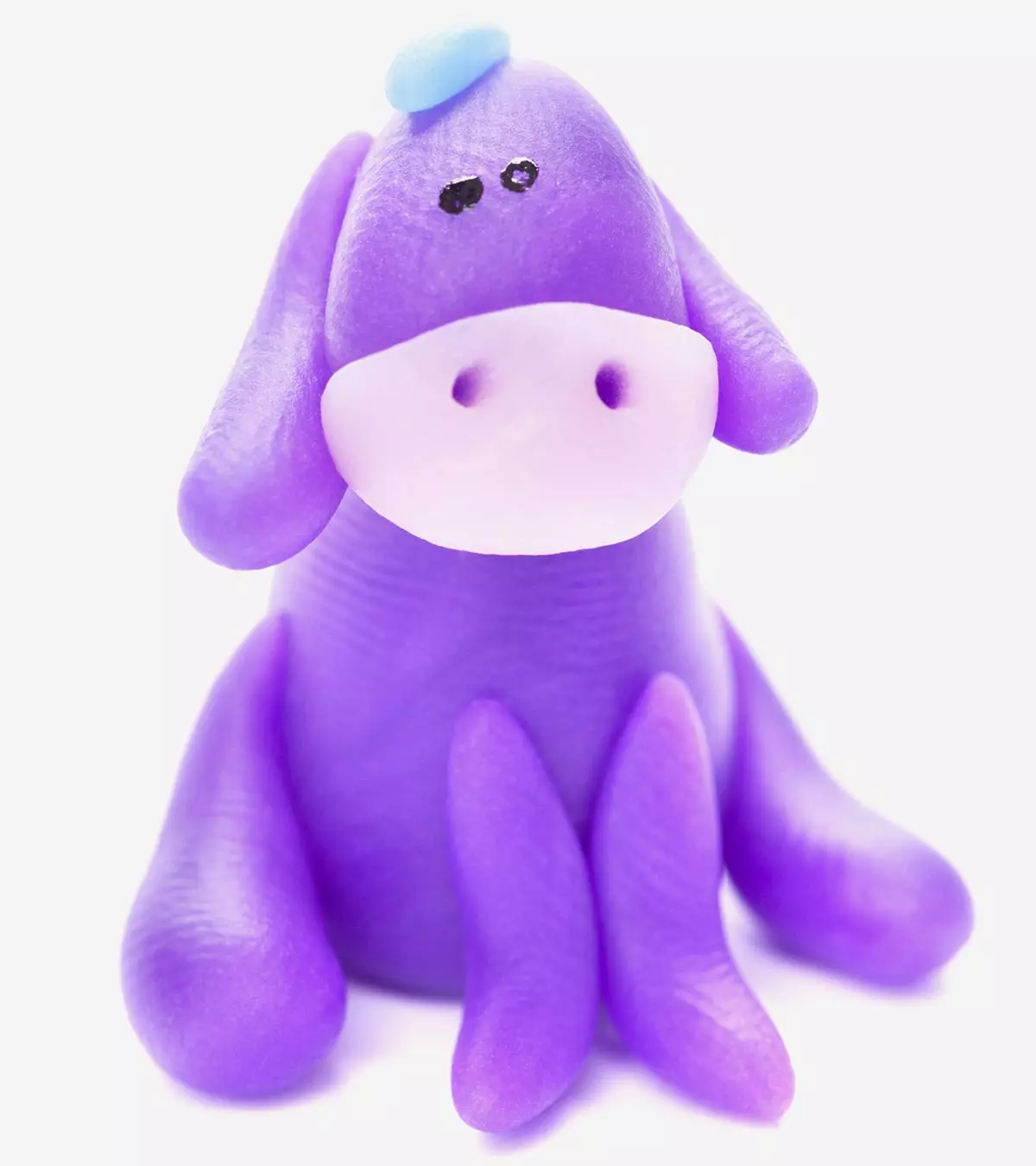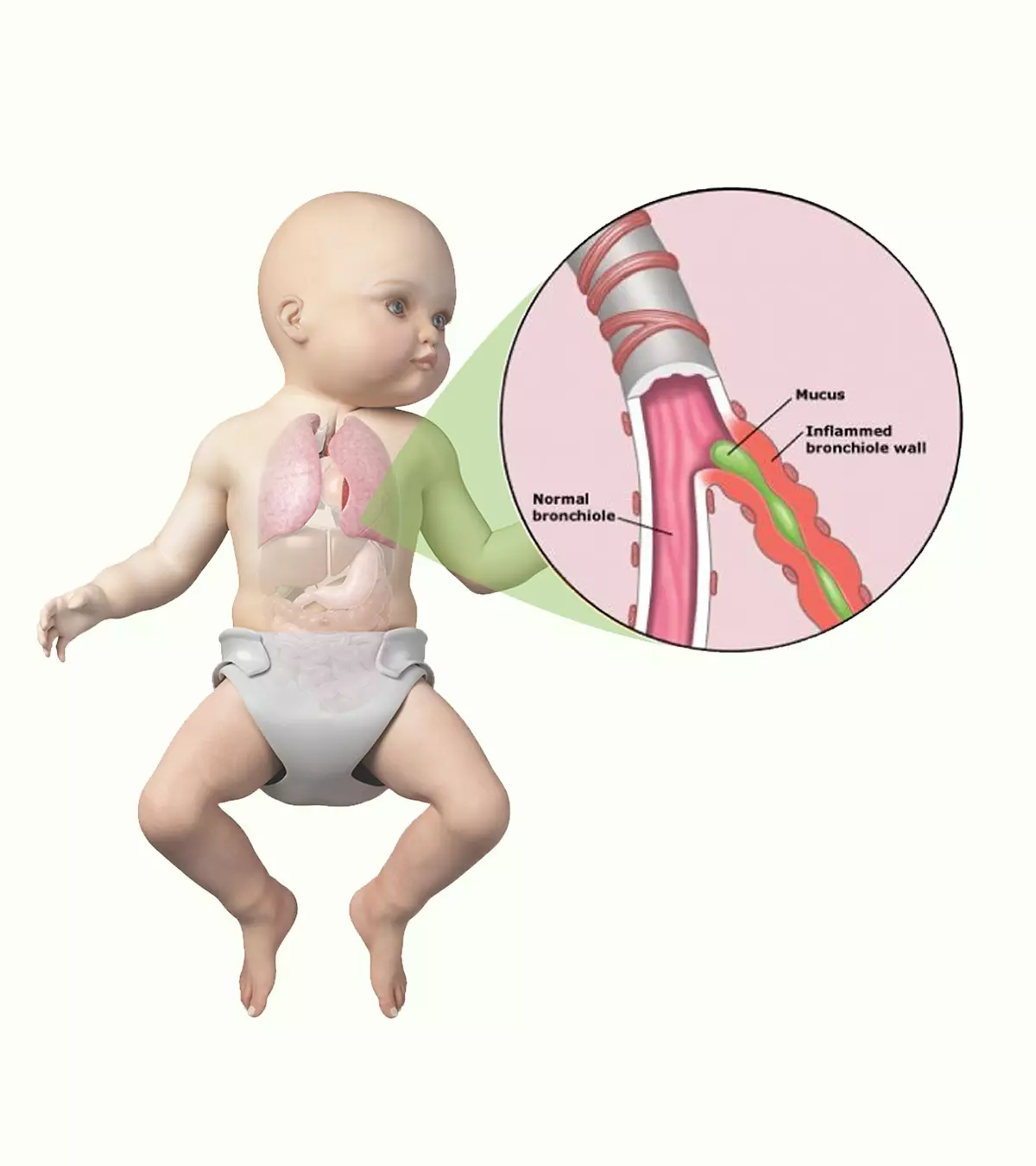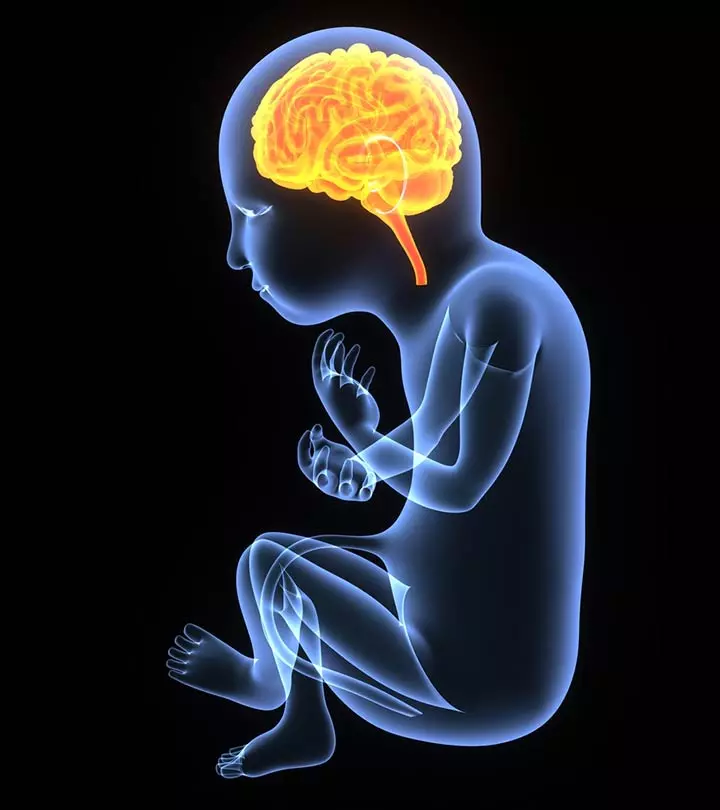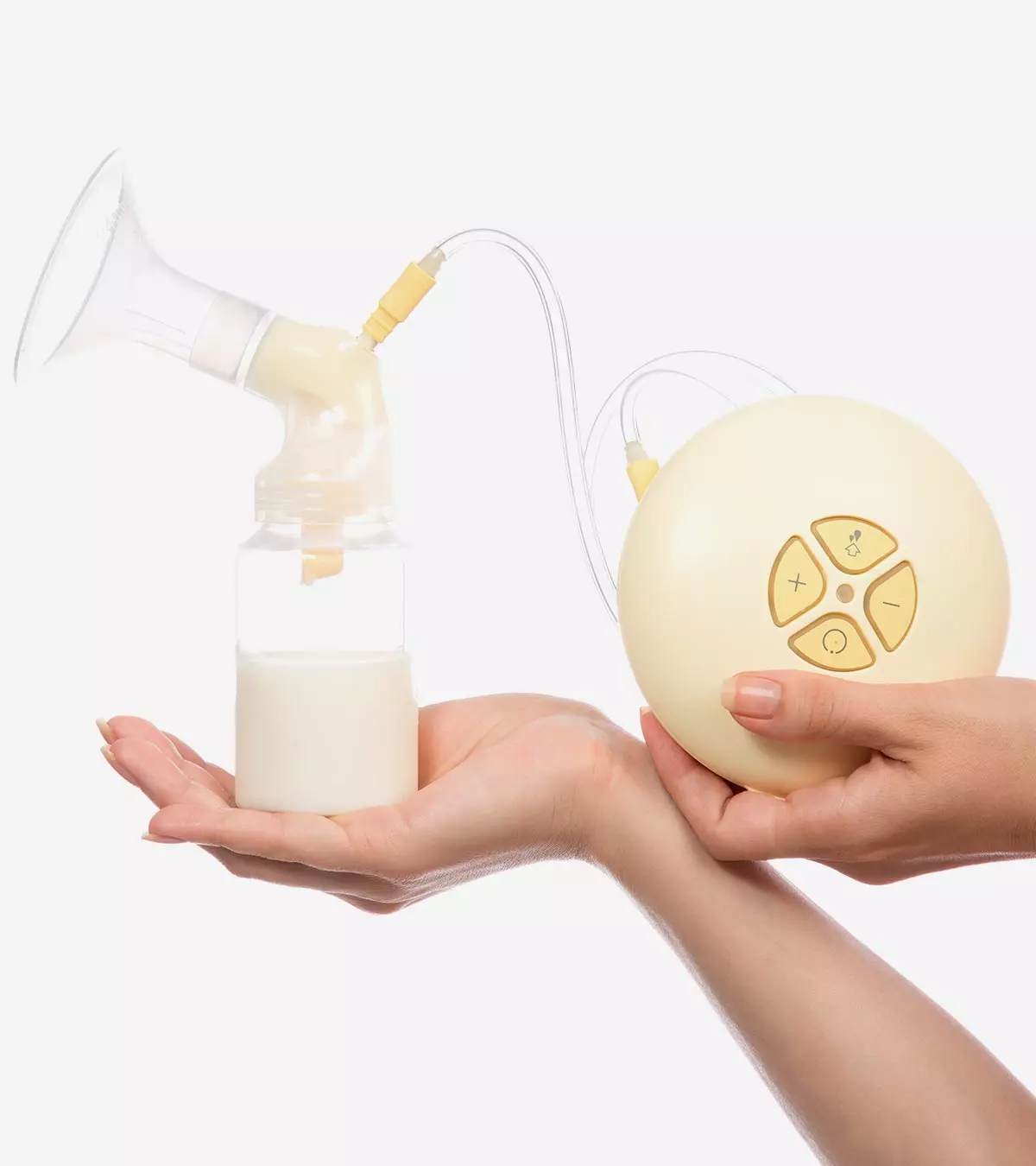

Image: Shutterstock
Most of us want to curl into a ball and cry when we’re on our period — we totally get that. The prospect of lying in bed with a heating pad and a bar of chocolate seems far more appealing than putting on your walking shoes and aiming for ten thousand steps. Why would anyone want to move around and sweat it out when your body is already in pain, right? Well, we would say there’s definitely other ways of looking at it!
Exercise, weirdly enough, seems to be the answer to all your period woes, and there’s enough scientific evidence to back this up. We hate to break this to you, but all those endorphins (which will be released when exercising) are a lot more effective and healthier than your usual painkillers! (1). So, if you’re thinking that sweating it out will deteriorate your already painful condition, maybe it’s time we shed some light on this misconception. It’s just a matter of working out the right way.
So, let’s look at why you should be sweating it out and how to do so when Aunt Flo pays a visit:
Why You Should Consider Exercising When On Your Period
Image: Shutterstock
The last thing you want to do when you’re bleeding through your lady parts is exercise — yes, we totally understand this, but there’s plenty of reasons why you should get up and get moving. You may not like it before your workout, and you’ll probably hate it during your workout, but you’ll love that you went ahead and exercised — after you’ve done it!
Exercise can uplift your mood. When you exercise, a hormone called serotonin is released, which is responsible for enhancing your mood and de-stressing you. It can also bring along a wave of energy — so, all that moving helps deliver oxygen to your entire body and improves circulation as well. If you struggle with falling asleep, then exercising will take care of that as well! (2).
A lot of women suffer from period cramps and backaches. Studies have been conducted to prove that a good workout session during your monthlies can help alleviate headaches, cramps, and backache, all of which are associated with menstruation. Endorphins, a hormone that reduces your perception of pain, are released when you exercise, bringing you relief from pain (3).
We agree the first few times are not going to be that pleasurable and in fact you would feel like quitting it midways several times. But gradually, mark our words, you would start enjoying these workout sessions. So much so that a few weeks down the road, you would probably feel irritated if you can’t put in your hourly sessions of exercise. So, if you’re planning to start soon, train your mind to brave through the initial resistance and just keep going through the process.
Exercising On Your Period…When You Absolutely Don’t Want To
Image: Shutterstock
Now that you know why it’s a great idea to exercise on your period, here are some ways to go ahead and do it:
1. Opt For The Exercises You Like
Image: Shutterstock
We all have a bunch of exercises we absolutely hate, but we do it anyway because it’s effective. Since you’re on your period, cut yourself some slack and avoid these exercises. Instead, what you can do is, go for the activities that you usually enjoy doing. It could be that you hate your gym workouts, but the prospect of going on a nice walk seems a little doable. So, go for that walk instead!
2. Think Of The Benefits
Image: Shutterstock
Let’s admit it — there are tons of benefits associated with working out. When you don’t feel like working out, think of all those benefits you will miss out on. You’re going to feel great, all that muscle pain will magically disappear, you’ll feel happier, and you’ll also be proud! Plus, you tend to feel bloated around your period, so a good workout can help reverse that! (4).
Exercise, be it yoga, running, cardio, or weight training help strengthen your back and core muscles which provide extra strength to you. You feel more rejuvenated and can be more proactive throughout the day in your other activities. And the great thing about workouts is that the more you indulge in them, the more your body can improve and keep getting better. Soon enough you won’t even need to push yourself, you’ll crave for your exercise sessions. Something that you started for adrenaline rush can easily become an important exercise of your day.
3. Take It Slow
Image: Shutterstock
We’re encouraging you to exercise, but we’re not asking you to push yourself too hard and your body over the limit. The whole idea of exercising during your period is to make yourself feel better, not worse. When you go over the top and do a high-intensity workout, you may end up with muscle or body aches, which is the last thing you need during your period. So, opt for light and easy exercise, such as yoga, jogging, or walking.
4. Choose The Right Products
Image: Shutterstock
We all know how messy this time of the month can get. For most women, the first two days are the worst when the bleeding is excessive. It is best to invest in products that are conducive to your choice of workout. For example, you can’t go swimming with sanitary pads; you’ll have to use tampons or menstrual cups. When hitting the gym, consider wearing period panties, as they’re a breeze!
5. It’s Just A Few Minutes!
Image: Shutterstock
Think about it — a day has twenty-four hours, and you’re only giving twenty or thirty minutes to exercise. You can then spend the whole day after your workout relaxing! It’s a great way to trick your brain into doing the workout. You can also plan your day in advance to know exactly when you have to exercise, work, eat, and sleep.
Everybody’s body is different, and so is their period. Exercise generally has several benefits, but it is best to consult a doctor if you have an underlying health condition. This way, you’ll know which exercise to avoid. Do you usually push yourself to exercise during your period? Share your experience with us in the comments below!
References
- Endorphins and exercise
https://pubmed.ncbi.nlm.nih.gov/6091217/ - The role of exercise in the treatment of menstrual disorders: the evidence
https://www.ncbi.nlm.nih.gov/pmc/articles/PMC2662100/ - Understanding Endorphins and Their Importance in Pain Management
https://www.ncbi.nlm.nih.gov/pmc/articles/PMC3104618/ - The Importance of Exercise as a Therapeutic Agent
https://www.ncbi.nlm.nih.gov/pmc/articles/PMC3406202/
Community Experiences
Join the conversation and become a part of our nurturing community! Share your stories, experiences, and insights to connect with fellow parents.

